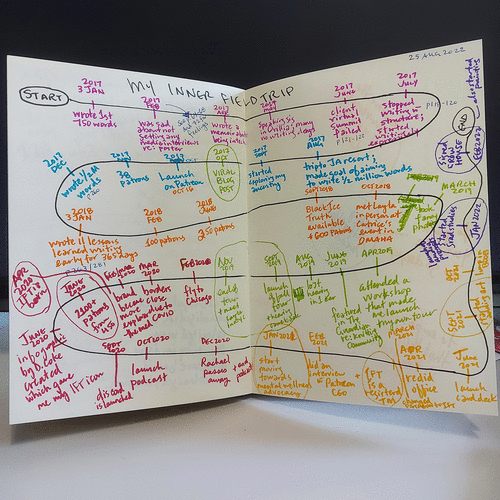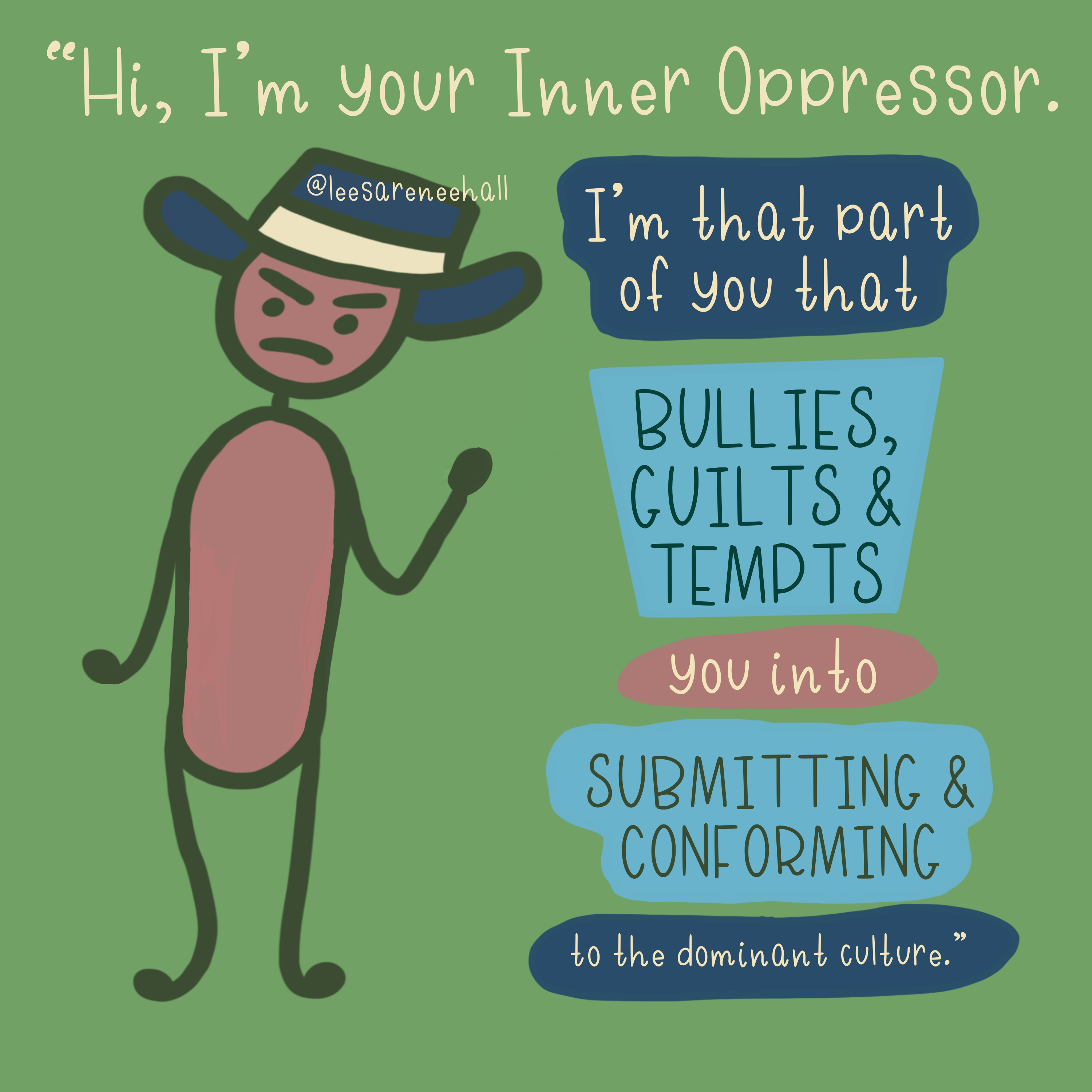S.M.A.R.T. goals are specific, measurable, achievable, realistic, and time sensitive. There are many articles and posts explaining what are S.M.A.R.T. goals that I don’t need to labour over those details here.
First, a backgrounder on how S.M.A.R.T. goals were established…
In a November 1981, an article entitled There’s a S.M.A.R.T. way to write management’s goals and objectives appeared in a journal called Management Review. Written by George T. Doran, he argued that:
“The establishment of objectives and the development of their respective action plans are the most critical steps in a company’s management process. Objectives [or goals] give quantitative support and expression to management’s beliefs.”
Doran, 1981, p. 35
The S.M.A.R.T. acronym, mentioned in a trade publication just over 40-years ago, captured the attention of those outside of management. Today, it is used by academics, teachers, coaches, parents, and influencers, just to name a few, to bring actionable meaning to personal and professional goals.
My challenge with S.M.A.R.T. goals…
I’ve had an uneasy relationship with setting S.M.A.R.T. goals. First, I find setting goals following this acronym to be rigid and constricting. I work better when there is fluidity and space to adjust the specificity and measurability of a goal should I encounter an obstacle.
The other challenge I have with S.M.A.R.T. goals is the emphasis on self-reliance and inner drive without taking external factors into account. If I fail at accomplishing a goal, is it due to my lack of motivation or a lack of access to resources?
A Culturally Responsive & Socially Just (CRSJ) critique of S.M.A.R.T. goals…
The Culturally Responsive and Socially Just (CRSJ) counselling framework is a theory introduced by Dr. Sandra Collins, a professor of counselling psychology in the Graduate Centre for Applied Psychology at Athabasca University. CRSJ finds its roots in the Multicultural Counselling Competencies (MCC) and Multicultural and Social Justice Counseling Competencies (MSJCC) frameworks (Singh et al., 2020; Sue et al., 1992).
Although the MSJCC and the CRSJ frameworks appear similar, they differ in that MSJCC has a singular view of multiculturalism and does not include the intersection of multiple cultural identities, such as sexual orientation, religion, and gender identity (Killian, 2018, p. 5). However, that is changing. MSJCC is expanding to include an intersection of identity-based oppressions beyond race and racism (Pedersen & Ratts, 2014).
CRSJ “guides counsellors, psychologists, social workers, and other helping professionals to develop cultural competency by enhancing cultural self-awareness, cultural humility, and cultural sensitivity in the context of anti-oppressive and values-based practice principles” (Collins, 2021). As counsellors become more culturally aware, “they gain insight into how oppression affects people’s lives and the way in which systemic inequities lead to internalized oppression” (Pedersen & Ratts, 2014, p. 10).
A culturally responsive and socially just approach acknowledges systemic, political, environmental, and intersectional factors that could prevent a person from setting a S.M.A.R.T. goal…
There are external factors preventing the individual from sticking to their S.M.A.R.T. goal and this must be acknowledged. One can have all the motivation in the world, however, if they don’t have the finances or are prevented from accessing resources due to oppression, marginalization, or bias, the absence of access could set them up for failure if they’re relying on self-reliance.
One could say that the A and the R – achievable and realistic – is where one would capture any limitations to the successful completion of a S.M.A.R.T. goal. I don’t disagree. However, I believe that we need to call a thing a thing and be more intentional in capturing external factors which may be outside of our control that could become a barrier. We should do this, not to make excuses, but to plan for any obstacles that may come up.
Through a culturally responsive and socially just lens, I propose that we create S.M.A.R.T.E.R. goals…
I did not originate the expansion of S.M.A.R.T. to S.M.A.R.T.E.R. Some have added an E and R to the acronym to refer to the following:
- Evaluate and recognize (several sources)
- Evaluate and revise (Quantum Workplace)
- Ecological and reward (A Daring Adventure)
- Ethical and reviewable (IEEE Houston)
I propose that the E and R in S.M.A.R.T.E.R. refer to Equitable and Self-Reflection. I’ll explain each below.
E = Equitable
The Management Center, based in Washington D.C., added Equitable to the S.M.A.R.T.I.E. acronym (the I is for Inclusion). It states that:
By incorporating an equity and inclusion component to your SMART goals, you can make sure your organization’s commitment to racial equity and inclusion is anchored by tangible and actionable steps.
The Management Center, 2021, https://www.managementcenter.org/resources/smartie-goals-worksheet/
Disclosure Statement
I’ve written this post while a graduate student in a counselling psychology program and have included content from a paper I wrote, A Culturally Responsive & Socially Just Critique of Jungian Theory.
References
Collins, S. (2021). Culturally responsive and socially just counselling: Teaching and learning guide. Press Books. https://crsjbook.pressbooks.com/
Doran, G. T. (1981). There’s a S.M.A.R.T. way to write management’s goals and objectives. Management Review, 70(11), 35–36.
Killian, T. S. (2018). Counselor-trainees’ readiness for multicultural competency and social justice advocacy (Doctoral dissertation). Scholarship & Creative Works @ Digital UNC. https://digscholarship.unco.edu/dissertations/430
Pedersen, P. B., & Ratts, M. J. (2014). Counseling for multiculturalism and social justice: Integration, theory, and application (4th Ed.). American Counseling Association.
Singh, A. A., Nassar, S. C., Arredondo, P., & Toporek, R. (2020). The past guides the future: Implementing the multicultural and social justice counseling competencies. Journal of Counseling & Development, 98(3), 238–252. https://doi.org/10.1002/jcad.12319
Sue, D. W., Arredondo, P., & McDavis, R. J. (1992). Multicultural counseling competencies and standards: A call to the profession. Journal of Counseling & Development, 70(4), 477-486. https://doi.org/10.1002/j.1556-6676.1992.tb01642.x
Citation (APA 7th)
Hall, L. R. (2022). The key problem setting S.M.A.R.T. goals through a culturally responsive and socially just lens. [add url]





0 Comments